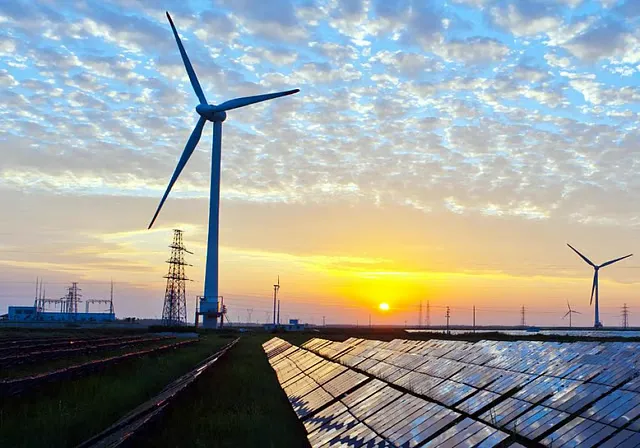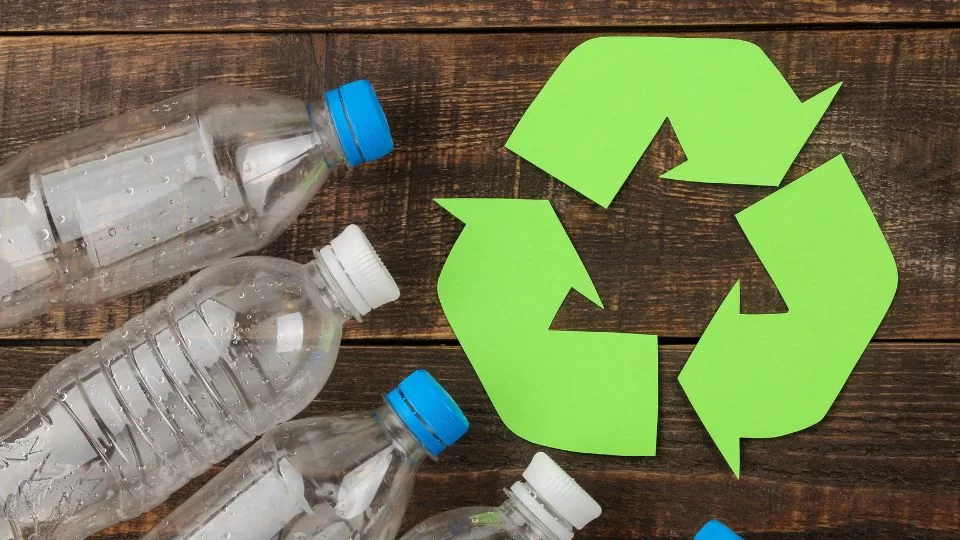Plastic pollution is one of the most pressing environmental challenges of our time. With millions of tons of plastic ending up in landfills, oceans, and natural habitats every year, the need for innovative solutions has never been more urgent. Simultaneously, the world faces a growing demand for clean and sustainable energy sources to combat climate change and reduce reliance on fossil fuels.
A recent groundbreaking initiative in the United Kingdom is addressing both of these issues simultaneously. Researchers have developed an innovative method to convert plastic waste into renewable energy, transforming non-recyclable plastics into usable fuel. This approach not only offers a sustainable alternative to traditional energy sources but also presents a practical solution to the global plastic crisis.
In this article, we will explore the science behind this innovation, its environmental and economic implications, the challenges involved, and its potential to reshape the future of energy and waste management.
Table of contents
- The Global Plastic Crisis
- The Science of Converting Plastic to Green Energy
- Environmental Implications
- Economic and Social Impact
- Challenges and Considerations
- Global Context: Plastic-to-Fuel Initiatives
- Future Prospects and Innovations
- How Individuals Can Contribute
- Real-World Impact of the UK Project
- Conclusion
The Global Plastic Crisis
Plastic has become an integral part of modern life due to its versatility, durability, and low cost. From packaging to electronics, automotive parts, and household items, plastics are ubiquitous. However, the very qualities that make plastic so useful also make it an environmental threat.
1. Plastic Waste Statistics
According to global estimates:
- Over 400 million tons of plastic are produced annually worldwide.
- Only 9% of plastic waste is recycled, while 79% accumulates in landfills or the natural environment.
- Plastics can take hundreds of years to decompose, causing long-term ecological damage.
2. Environmental Impact
Plastic pollution affects ecosystems, wildlife, and human health:
- Marine life ingests microplastics, which accumulate up the food chain.
- Plastics release toxic chemicals as they degrade, impacting soil and water quality.
- Incineration of plastic waste contributes to greenhouse gas emissions.
The urgency to find innovative solutions for non-recyclable plastics has led scientists and engineers to explore alternative approaches, including chemical recycling and energy conversion.
The Science of Converting Plastic to Green Energy
The UK project focuses on a chemical conversion process that transforms plastic waste into usable fuel. Unlike traditional recycling, which mechanically reprocesses plastics into new products, this approach breaks down complex polymers into simpler molecules, making them suitable for energy production.
1. The Chemical Process
The process involves several key steps:
- Sorting and Preparation: Non-recyclable plastics, which cannot be processed through conventional recycling methods, are collected and sorted.
- Depolymerization: Plastics are broken down into smaller molecules through controlled chemical reactions, often involving heat, pressure, or catalysts.
- Conversion into Fuel: The resulting molecular compounds are refined into fuels such as diesel, gasoline, or hydrogen-rich gas, which can be used in power generation or transportation.
This method essentially transforms waste into a renewable energy source, reducing dependence on fossil fuels while addressing plastic pollution.
2. Advantages Over Conventional Recycling
Unlike mechanical recycling, which can only handle certain types of plastics and often results in lower-quality materials, chemical conversion:
- Can process mixed and contaminated plastics.
- Produces high-energy fuel suitable for industrial or transportation applications.
- Reduces the need for landfill space and the environmental impact of plastic disposal.
Environmental Implications
The environmental benefits of converting plastic waste into green energy are significant:

1. Reduced Plastic Pollution
By diverting non-recyclable plastics from landfills and oceans, this approach reduces the ecological footprint of plastic waste. It prevents further contamination of soil and water bodies, protecting ecosystems and wildlife.
2. Lower Carbon Emissions
Although the process involves energy input, it produces less carbon dioxide compared to traditional fossil fuel production. By replacing conventional diesel or gasoline with fuel derived from plastic waste, net greenhouse gas emissions can be reduced.
3. Sustainable Energy Production
Plastic-derived fuel can supplement renewable energy sources like solar and wind, providing a reliable energy alternative that contributes to a diversified energy portfolio.
4. Circular Economy Potential
This innovation supports the circular economy, where waste is transformed into a valuable resource. Instead of plastics being discarded, they are reintegrated into the energy system, promoting sustainability.
Economic and Social Impact
Beyond environmental benefits, the project has significant economic and social implications:
1. Job Creation
The development and operation of plastic-to-fuel facilities can create jobs in research, engineering, operations, and logistics. Communities involved in waste collection can also benefit economically.
2. Reducing Energy Costs
By producing fuel locally from plastic waste, countries can reduce reliance on imported fossil fuels, potentially stabilizing energy prices and enhancing energy security.
3. Promoting Innovation
Projects like this stimulate innovation in chemical engineering, waste management, and renewable energy. They encourage investment in research and the development of new technologies to tackle global challenges.
Challenges and Considerations
Despite its promise, converting plastic to green energy is not without challenges:
1. Energy Input
Chemical conversion processes require significant energy input, often from heat or pressure. Ensuring that the energy used in conversion does not outweigh the environmental benefits is critical.
2. Emissions and Byproducts
Although cleaner than traditional plastic incineration, the process can produce emissions or chemical byproducts that must be carefully managed to avoid environmental harm.
3. Economic Viability
Scaling up from pilot projects to commercial operations requires substantial investment. The cost of setting up and maintaining facilities must be balanced against the revenue from produced fuel.
4. Waste Collection and Sorting
Efficient collection, transportation, and sorting of plastic waste remain logistical challenges. Contamination or improper sorting can reduce the efficiency and effectiveness of the process.
5. Public Awareness
Educating communities about plastic separation and the benefits of this approach is essential. Successful implementation depends on widespread participation in proper waste management practices.
Global Context: Plastic-to-Fuel Initiatives
The UK project is part of a broader global trend to repurpose plastic waste for energy:
- Japan: Several chemical recycling plants convert PET bottles into fuel or new plastic products.
- Netherlands: Innovative depolymerization technologies are being tested to produce diesel from mixed plastics.
- United States: Pilot programs explore pyrolysis, a similar process that converts plastics into synthetic fuels and oils.
These initiatives demonstrate that chemical conversion of plastics is becoming a viable solution to both energy and environmental challenges.
Future Prospects and Innovations
The potential of plastic-to-fuel technology is vast, with ongoing research focusing on:

1. Improving Efficiency
Researchers are developing new catalysts and reaction methods to increase fuel yield while minimizing energy consumption.
2. Expanding Feedstock
Future facilities may handle a broader range of plastics, including composite and multi-layered materials that are currently non-recyclable.
3. Integration with Renewable Energy
Combining plastic-to-fuel technology with solar, wind, or biomass energy could create fully sustainable energy systems with minimal carbon footprint.
4. Hydrogen Production
Some processes are being refined to generate hydrogen gas from plastic waste, providing a clean fuel for transportation and industrial use.
5. Policy Support
Government incentives, subsidies, and regulatory frameworks can accelerate adoption. Policies that encourage waste collection, research funding, and sustainable energy use are essential for scaling these projects.
How Individuals Can Contribute
While large-scale chemical conversion projects are essential, individuals can play a role in reducing plastic waste and supporting sustainability:
- Reduce Plastic Use: Opt for reusable items, avoid single-use plastics, and choose sustainable packaging.
- Proper Sorting: Ensure plastics are separated correctly for recycling or conversion programs.
- Support Innovation: Advocate for and invest in technologies that address waste and energy challenges.
- Educate Others: Spread awareness about the environmental impact of plastic pollution and the potential of renewable energy solutions.
Individual actions complement technological innovations, creating a comprehensive approach to environmental sustainability.
Real-World Impact of the UK Project
The UK project has already demonstrated promising results:
- It has successfully converted tons of plastic waste into usable fuel, supplying energy to local communities.
- Early studies show reductions in carbon emissions compared to conventional fossil fuels.
- The project has stimulated research collaborations between universities, government agencies, and private enterprises.
- Communities participating in waste collection have reported economic benefits, including job creation and reduced landfill costs.
As the project scales up, its impact could influence national waste management strategies and energy policies, setting a benchmark for global replication.
Conclusion
Plastic pollution and energy sustainability are two of the most pressing challenges of the 21st century. The innovative UK project turning plastic waste into green energy demonstrates that these challenges can be addressed simultaneously. By applying advanced chemical processes, researchers are transforming non-recyclable plastics into usable fuel, reducing environmental impact while providing a renewable energy source.
While challenges remain—such as energy input, emissions, economic feasibility, and public participation—the potential benefits are immense. Cleaner energy, reduced plastic pollution, job creation, and support for a circular economy make this technology a beacon of hope in the fight against environmental degradation.
As the world seeks sustainable solutions, innovations like plastic-to-fuel projects highlight the power of science and ingenuity. By investing in research, adopting sustainable practices, and fostering global collaboration, we can turn waste into opportunity, creating a cleaner, greener, and more sustainable future.
